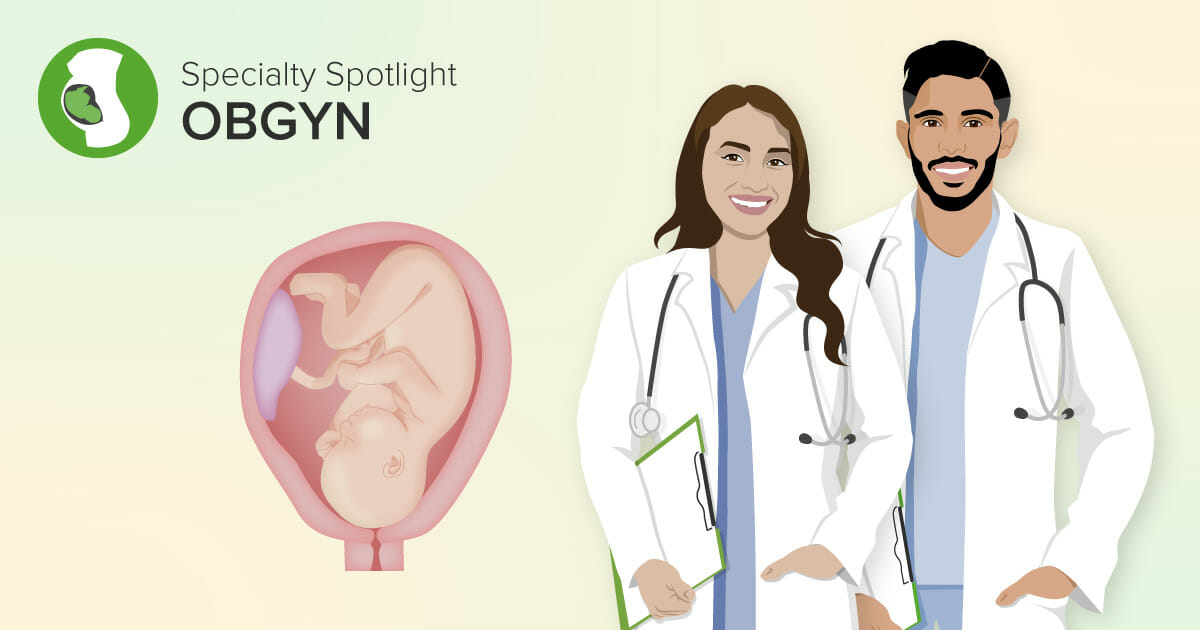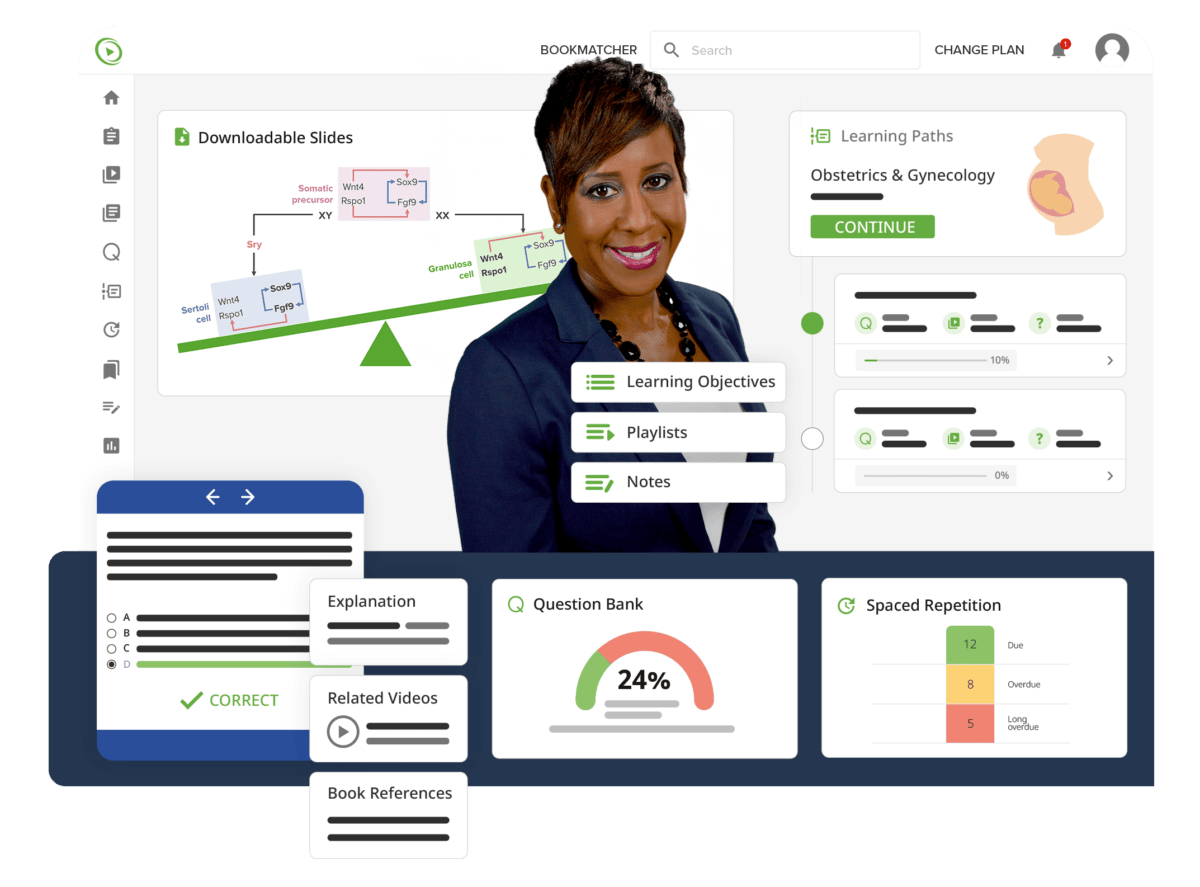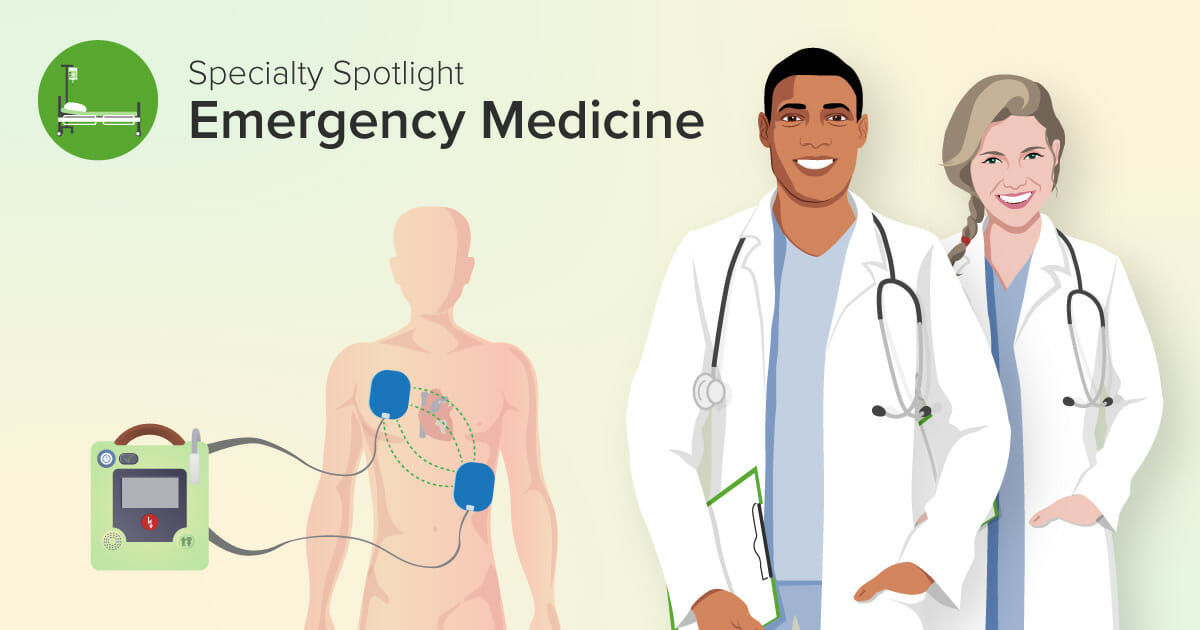Interview: How to Become an Obstetrician and Gynecologist
Q: Hi Suzanne! Which medical school did you attend, where did you do your residency, and what was that like?
A: I attended the Stritch School of Medicine at the Loyola University Chicago. I did my residency in Obstetrics and Gynecology at Naval Medical Center Portsmouth. I really enjoyed medical school. You choose that path because you enjoy learning about all the functions of the body and because you want to help people. But pre-med is very basic science, so it’s exciting to finally get into med school and really get to learn what you actually want to and are interested in the most.
Q: Why and how did you decide on your specialty, did you always know?
A: Conceptually, in the first two years of medical school, internal medicine was my favorite: learning about cardio, physiology, the respiratory system, and how it all works. I had been thinking, OBGYN might be one that I would like; I had it in the back of my mind that I may be surprised by this one – and I was. When studying, I always found hormones confusing! It did not seem as conceptually interesting.
But during rotations, I noticed that I very much enjoyed working with women as patients! I related to them and just liked the OBGYN patient population, which comes with a special kind of intimacy in the physician/patient relationship. Pregnancy and childbirth are incredible experiences! These are also vulnerable and special times for women; the topics in the field such as pregnancy, pregnancy loss, abnormal periods, pelvic pain in general… these can be embarrassing or difficult for patients to open up about. It can be very rewarding to be the person to help with such issues that impact life so much, yet are difficult to talk about.
So I thought I’d like internal medicine because I liked conceptually learning about it, but in practice, I felt like it meant managing a lot of lifestyle diseases, tweaking medications, as opposed to more concrete things, like watching a baby be born, or physically removing a giant fibroid.
It’s like the difference between “medicine” and “surgery” – seeing an immediate result. I tend toward that second preference, and therefore, with the practical experience, realized that OBGYN was the specialty for me.
Q: What does a typical day look like for you?
A: OBGYN has lots of variety! There are subspecialties that are different, but a general OBGYN might have three main types of work days:
- A day in clinic: Go in, work in the office, see patients. You’d have a mix of obstetric patients (often easier with a lot of counseling) and gynecologic patients (anything from abnormal bleeding, contraception, hormones, pelvic pain, menopause, etc.). We also do a decent amount of procedures, including ultrasounds for both OB and GYN patients, biopsies, and IUD insertions.
- A day in the operating room: We are the surgeons for female reproductive anatomy. Examples of commonly performed surgeries are tubal ligations, ovarian cystectomies, hysterectomies, myomectomies… usually to treat abnormal bleeding or pain. There is a lot of minimally invasive surgery.
- A day of labor and delivery: In lots of places, someone will be there all day and in charge of labor and delivery. So you’ll be monitoring moms and babies, and, well, delivering babies.
Q: What’s the best part about working in your specialty, and what’s the most challenging?
A: Naming the most challenging part is easy: fetal loss. Even if you do everything right, sometimes it is inevitable, and you’re walking through this experience with the woman.
That kind of ties into why OBGYN is, on the other hand, so rewarding: When things go right, you are the one who gets to be there on this incredible day and it’s such an honor being with the woman on this journey.
I’m an empathetic person, so I thrive on those highs, but also because of that, the lows can be challenging to not take home with you. It gets a bit easier with time – you learn the words to say and not to say, and how to deal with it a little bit better.
Other than in the ER, where of course you also always hope you can save someone.
In OBGYN there’s this strong expectation that things will go right.
I feel like this expectation does add another emotional layer to it.
One other hard thing can be the schedule. People have babies 24/7. Nights, weekends, holidays – someone always needs to be there. But then, people have come up with a lot of different models to make this more doable, like forming larger groups to share the call-coverage, or hiring (or being!) a dedicated laborist.
A laborist (or OBGYN hospitalist) is someone who exclusively works shifts on labor and delivery and does not provide prenatal care.
Q: Tell me something unique about your field.
A: The obvious one is childbirth! It’s such a big thing. Any OBGYN will have this experience: you’re closely monitoring the fetal monitor and the woman, and things may go well or horribly wrong very quickly. This does add an element of adrenaline. There aren’t a ton of other specialties where you might be running to the operating room like you may be when a mother is bleeding out and we need to get a baby out with a huge abdominal surgery within like 60 seconds or so. It’s both empowering and terrifying to think about.

Q: What advice do you have for students trying to find the right specialty for them?
A: Go into rotations with an open mind! Not just what appeals to you conceptually, but also what appeals to you when you actually deal with patients. This may differ, like it did for me.
Also pay attention to how your job will fit your whole life: when you go into work each day, what will you actually do? Office, paper work, will you need to be there at 5 a.m., etc.
To be a good OBGYN, you have to be able to make quick decisions, but also have good bedside manner. It is a life-changing experience for women. You need to talk to them, respect their wishes, and keep them safe at the same time. This is especially tricky when women come in with very specific or unrealistic ideas about what they want to do and how they want their labor and birth to be: sometimes people plan births down to a “T.” But if something doesn’t go perfectly, I have to communicate what’s best for the patient, and this needs some finesse sometimes when people are very adamant about their plans.
So you’ll also want to think about not just the type of work you are doing, but the type of patients you’ll be focusing on, and what those patient interactions will be like. Every specialty has amazing patients and some that are a bit more challenging, so you’ll need to find the specialty with the right balance for you personally. And that’s really one of the things you should be looking at while on your rotations.
Take the Course: Obstetrics & Gynecology
Start the online obstetrics & gynecology class taught by
Dr. Gillispie and Dr. Brayboy
At a Glance: Facts About Working as an OBGYN
How long does it take to become an OBGYN?
It takes about 12 years to become an OBGYN. Four are spent studying for a bachelor’s degree, another four are spent in medical school, and OBGYN residencies typically last four years. (UCSF Medical School, Hospital Careers)
How to become an OBGYN and what are the education requirements?
The education requirements to become an OBGYN come in three phases: The first is to get a bachelor’s degree in either pre-med or another degree that is heavily focused on math and science. The second is to take the MCAT, get accepted to medical school, and then attend medical school. The third is to complete a specialized residency in OBGYN. (Houston Chronicle, Hospital Careers)
What is an OBGYN and what do OBGYNs do?
OBGYNs are doctors who have undergone training in medical care for pregnancy and female reproductive health. These doctors help prevent, treat, and diagnose conditions related to reproductive organs and fetus health, as well as baby delivery. (Houston Chronicle)
OBGYN is made up of two types of medicine: (American University of Antigua)
- Obstetrics: This is the type of medicine focused on the care of every part of pregnancy, so the woman can receive medical care before, during, and after her pregnancy.
- Gynecology: This is the type of medicine that focuses on women’s reproductive health beyond just pregnancy. A healthy reproductive system and the prevention of the disease is the ultimate goal of this type of medicine.
Some of the subspecialties for OBGYNs are: (American University of Antigua)
- Gynecologic oncology: This specialty is for doctors who want to treat and diagnose gynecological cancers.
- Reproductive endocrinology and infertility (REI): These doctors specialize in the reproductive hormones and helping couples with fertility challenges get pregnant (e.g., they are the ones who do IVF).
- Maternal-fetal medicine: These doctors work with expecting mothers with high-risk pregnancies and any other concerns during maternity.
- Female pelvic medicine and reconstructive surgery (urogynecology): These doctors treat pelvic floor and urinary conditions, most commonly related to pelvic organ prolapse and urinary incontinence.
Working conditions and work-life balance
Full-time OBGYNs can work between 40 to 60 hours a week, several nights on-call a month. (UCLA School of Medicine)
Working environment and conditions:
- Most often, OBGYNs work in either a private practice office or a hospital. (American University of Antigua) The setting which they work in can decide their lifestyle and schedule.
- OBGYNs have a slightly high burnout rate. (Medscape)
- OBGYNs get exposed to a little bit of everything (primary care, surgical care, and research opportunities). (UCLA School of Medicine)
How much do OBGYNs make?
The average salary for an OBGYN is between $208,000 and $300,000. (Salary.com, Medscape)




